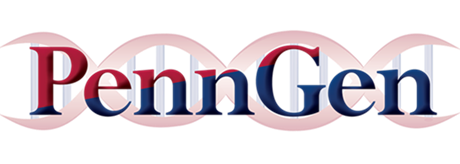There are two forms of Ichthyosis in the Golden Retriever. This form (ICH-2; severe) is characterized by severe flaking with large amounts of whitish to brown scales and secondary infections with Malassezia. Weight loss and lethargy are associated with ICH-2. These are often not manageable with medications or baths.
Depends on the severity
Autosomal recessive
Mild to moderate laminar orthokeratotic hyperkeratosis with an absence of epidermal hyperplasia and dermal inflammation.
ABHD5:c.1006_1019del
Normal (clear): Normal dogs will not develop ichthyosis type 2 nor will they pass along the defective allele (gene).
Carrier (heterozygote): Carriers have one normal and one ichthyosis type 2 mutant gene.
Affected: Affected dogs have two copies of the mutant gene and will develop ichthyosis type 2.
Explanation of Results
| Genotype |
Phenotype |
Interpretation |
| 2-2 (Homozygous Disease Variant) |
Unhealthy (Affected) |
Homozygous Affecteds (2-2) are expected to develop signs consistent with Ichthyosis (ICH-2) and all of their offspring will inherit a disease variant allele. Parents, offspring and relatives should also be tested. You may choose to contact us for a consultation on the management of this disease. 1 = Normal allele; 2 = Variant allele. |
| 1-2 (Heterozygous) |
Healthy (Carrier) |
Heterozygous Carriers (1-2) are not expected to develop signs of Ichthyosis (ICH-2) but each of their offspring has a chance of inheriting a disease variant allele. Parents, offspring and relatives should also be tested. 1 = Normal allele; 2 = Variant allele. |
| 1-1 (Homozygous Normal) |
Healthy (Normal, Clear) |
Homozygous Normals (1-1) are not expected to develop signs of Ichthyosis (ICH-2) and none of their offspring will inherit the disease variant allele. 1 = Normal allele; 2 = Variant allele. |
Carriers should only be bred to normal dogs in order not to produce affected dogs.

